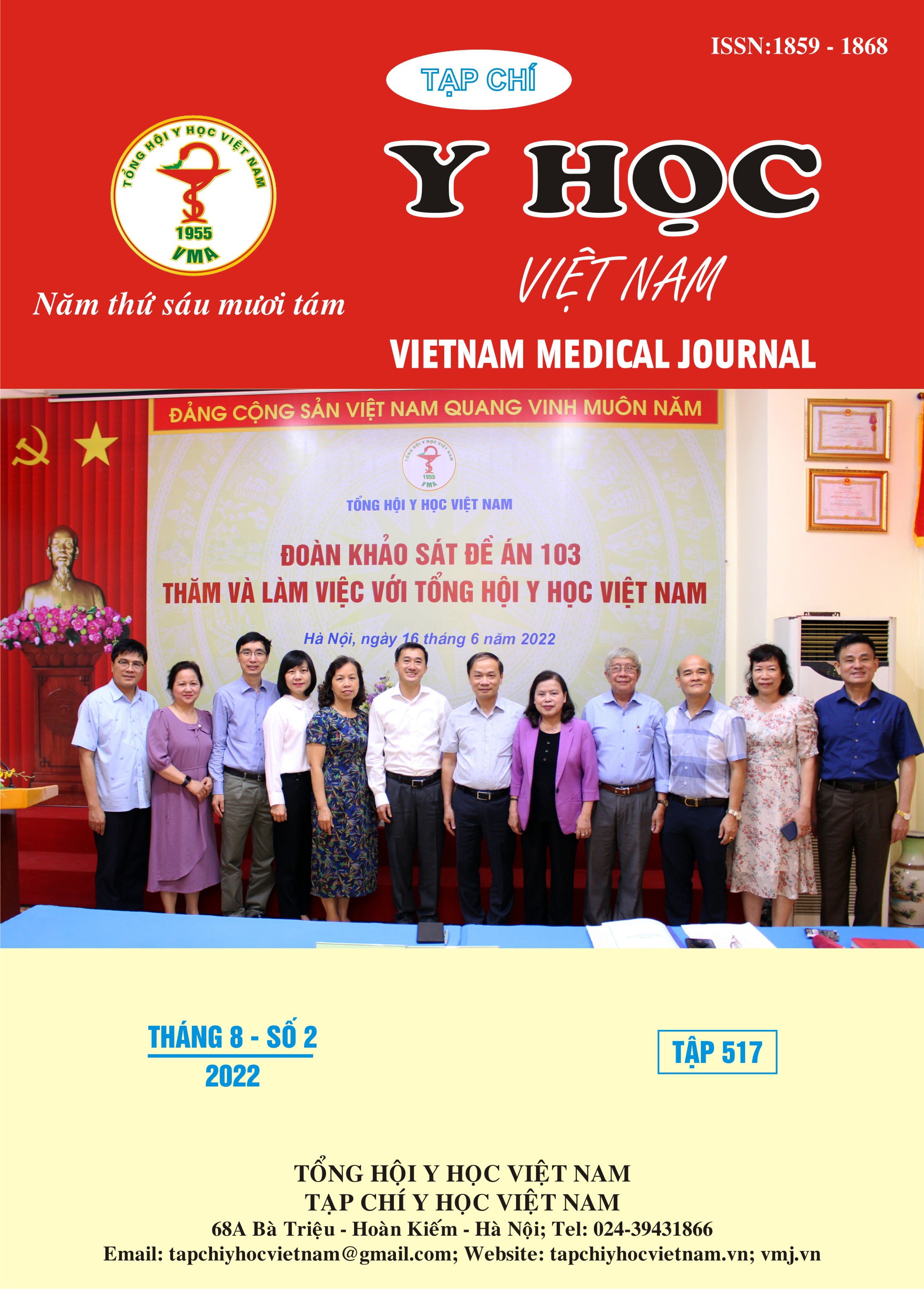ASSESSMENT OF NON-ADHERENCE TO DIETARY AND FLUID RESTRICTIONS IN HEMODIALYSIS PATIENTS
Main Article Content
Abstract
Purpose: to assess non-adherent to dietary and fluid restrictions in hemodialysis patients at 103 Military Hospital. Methods: The study design was a cross-sectional description with 97 patients on dialysis with a cycle of at least 3 months at the Department of Nephrology and Dialysis, 103 Military Hospital. Evaluation of non-adherence to dietary and fluid restriction: Blood Phosphorus > 7.5 mg/dl (2.42 mmol/L), pre-dialysis serum potassium > 6 mmol/L, weight gain between dialysis ≥ 5.7% dry weight. Data processing using SPSS 20.0 software. Results: The rate of non-adherence accounted for 35.1% (34/97). Factors associated with statistical significance with non-adherence to dietary and fluid restrictions included patient knowledge of dialysis treatment, depression, duration in dialysis, BMI<22. Conclusion: Non-adherence to dietary and fluid restriction in hemodialysis patients with a high rate of 35.1% is a challenge for hemodialysis units. Poor knowledge about dialysis treatment, depression, long duration in dialysis, and BMI < 22 are factors that may affect adherence to dietary and fluid restrictions.
Article Details
References
2. Nurten OZEN, Fatma Ilknur CINAR (2016), Nonadherence in. Hemodialysis Patients and Related factors: A Multicenter Study
3. Marie Patrice Halle, Musaga Nelson, Folefack Francois Kaze... (2020), “Nonadherence to hemodialysis regimens among patients on maintenance hemodialysis in sub-Saharan Africa: an example from Cameroon”, Renal Failure, 42:1, 1022-1028, http://doi.org/10.1080/0886022X.2020.1826965
4. Kana N. Miyata, Jenny I. Shen...(2013), “Patient knownledge and adherence to maintenance hemodialysis”
5. E Leigh Gibson, Ines Held, Dina Khawnekar, Peter Rutherford (2016), “Differences in Knowledge, Stress, Sensation Seeking, and Locus of Control Linked to Dietary Adherence in Hemodialysis Patients”
6. Claire Louise Durose, Michelle Holdsworth, Vicki Watson, Frances Przygrodzka (2000), “Knowledge of dietary restrictions and the medical consequences of noncompliance by patients on hemodialysis are not predictive of dietary compliance”.
7. Fahad Dakheel Alosaimi, Mohammed Asiri (2015), “Psychosocial predictors of nonadherence to medical management among patients on maintenance dialysis”.
8. Leung DK (2003): Psychosocial aspects in renal patients. Peritoneal Dialysis International 23: S90-S94.
9. Smith K, Coston M, Glock K, Elasy TA, Wallston KA, et al (2010): Patient perspectives on fluid management in chronic haemodialysis. J Renal Nutri 20: 334-341.
10. Khalil AA, Frazier SK, Lennie TA, Sawaya BP (2011): Depressive symptoms and Dietary Adherence in patients with End Stage Renal Disease. J Renal Care 37: 30-39.


